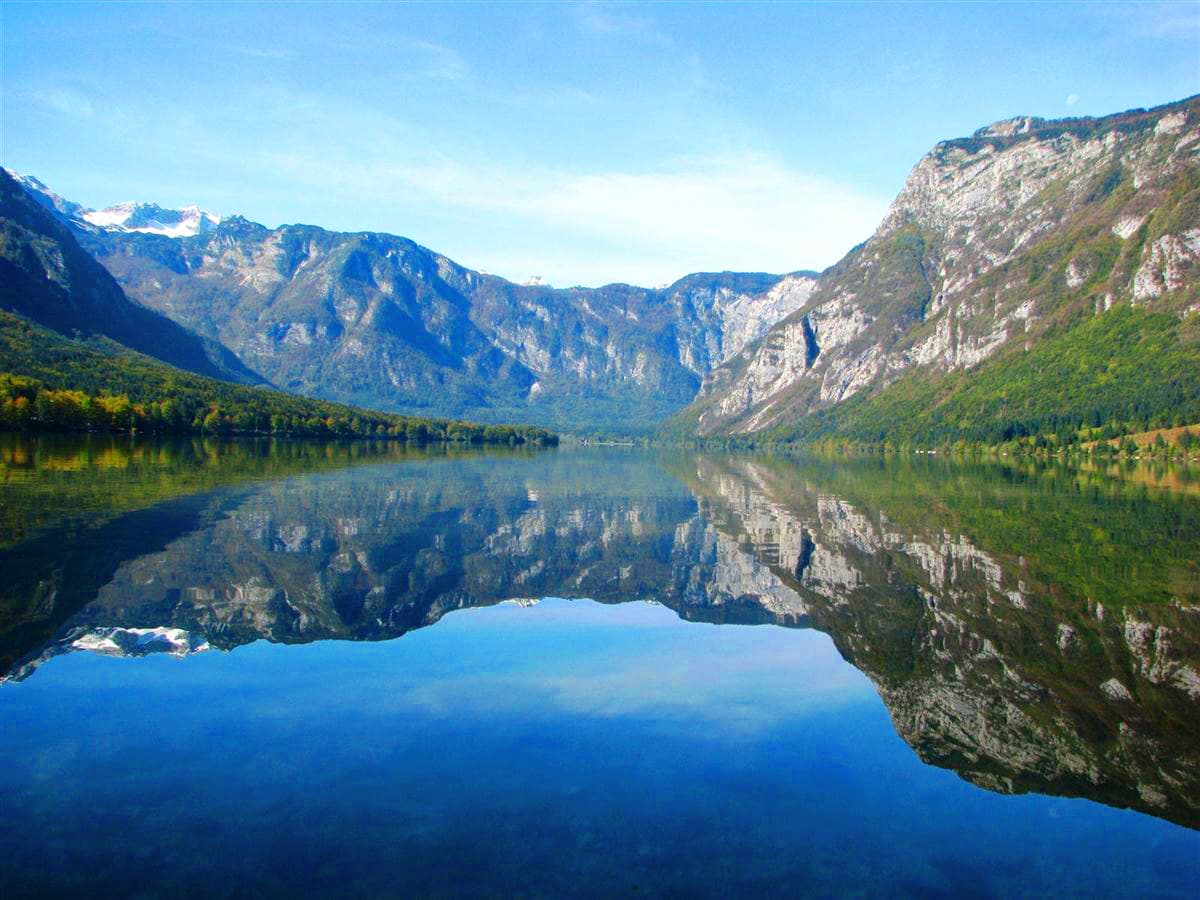Austrian composer Johanna Doderer (b. 1969) looked at the Slovenian Lake Bohinj for her second symphony, Bohinj (2015). Lake Bohinj in Slovenia is a remote lake on the edge of Triglav National Park.

Johanna Doderer
Ms. Doderer first focused on the magnificent landscape around the lake, but this doesn’t necessarily make for a dramatic piece of music. Although the scenery looks ‘pristine and primordial,’ she found at the end of the lake, at the foot of the mountains, a cemetery from WWI, where soldiers of all nationalities are buried side-by-side. The area was close to the border between Italy and the Austro-Hungarian Empire and was fought over many times, ending in the Battle of Caporetto in 1917, where the Italians were defeated with enormous losses.

Lake Bohinj
The first movement gives us a hint of the troubles that are to follow. The quiet harp opening and the countermelody in the strings don’t paint a picture of happiness. There’s majesty in the writing, but it’s offset by the non-major key. Disturbances are always in the background.
Johanna Doderer: Symphony No. 2, DWV 93, Bohinj – I. Introduction – Allegro con fuoco (Rheinland-Pfalz State Philharmonic Orchestra; Ariane Matiakh, cond.)
The second movement, for orchestra and soprano, sets a text by Christiana Schönborn-Buchheim, “Freide atmet der Wocheinersee” (Lake Wochein breathes peace). It speaks about the reflections of the stars in the lake and the secrets hidden in the solitude. The poet hears the dead men: “You have become brothers, where you once faced one another as strangers. Once your graves had been dug….Lake Wochein breathes peace.” The inspiration for the text was an inscription in the war cemetery itself.
Johanna Doderer: Symphony No. 2, DWV 93, Bohinj – II. Friede atmet der Wocheinersee (Anne Schwanewilms, soprano; Rheinland-Pfalz State Philharmonic Orchestra; Ariane Matiakh, cond.)
The final movement, Adagio maestoso, brings forth the question that any fought-over landscape music has: are we to remember the times of battle or the times of beauty? Does the sometimes invisible past echo into the present?
Johanna Doderer: Symphony No. 2, DWV 93, Bohinj – III. Adagio maestoso (Rheinland-Pfalz State Philharmonic Orchestra; Ariane Matiakh, cond.)
In her symphony, Doderer comes in on the side of peace: the harps and bells at the end are almost child-like after the complexities that preceded them but leave us in a positive mood. The moment of peace has come to fruition in the beauty and silence of the lake.
For more of the best in classical music, sign up for our E-Newsletter
